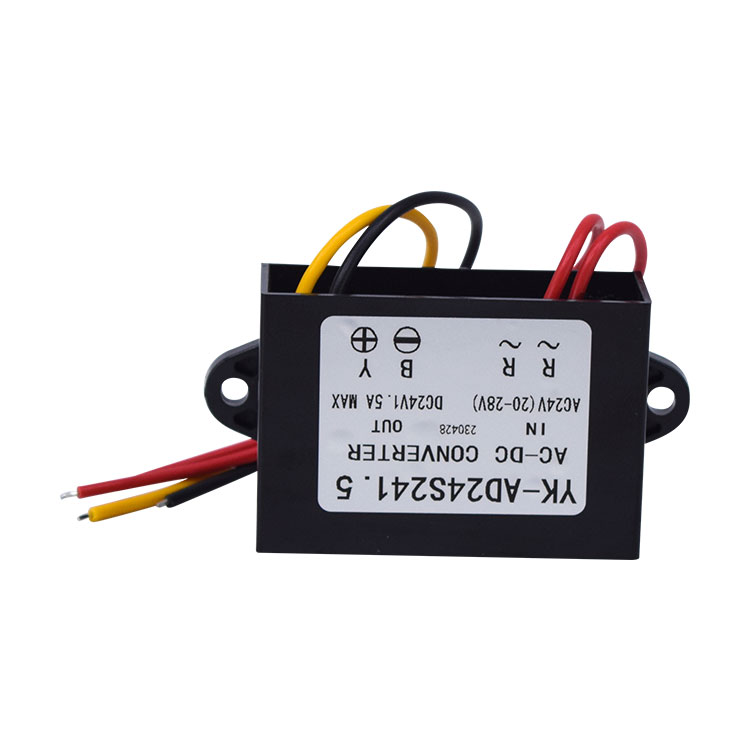News
Evolving Power Supply Solutions in the AC-DC Converter Industry: A Comprehensive Examination with a Focus on YUCOO
Click: 705 Date: 12/16/2023 3::19::13 PM
Evolving Power Supply Solutions in the AC-DC Converter Industry: A Comprehensive Examination with a Focus on YUCOO
Understanding Power Conversion: The Role of AC to DC Converters in the Industry
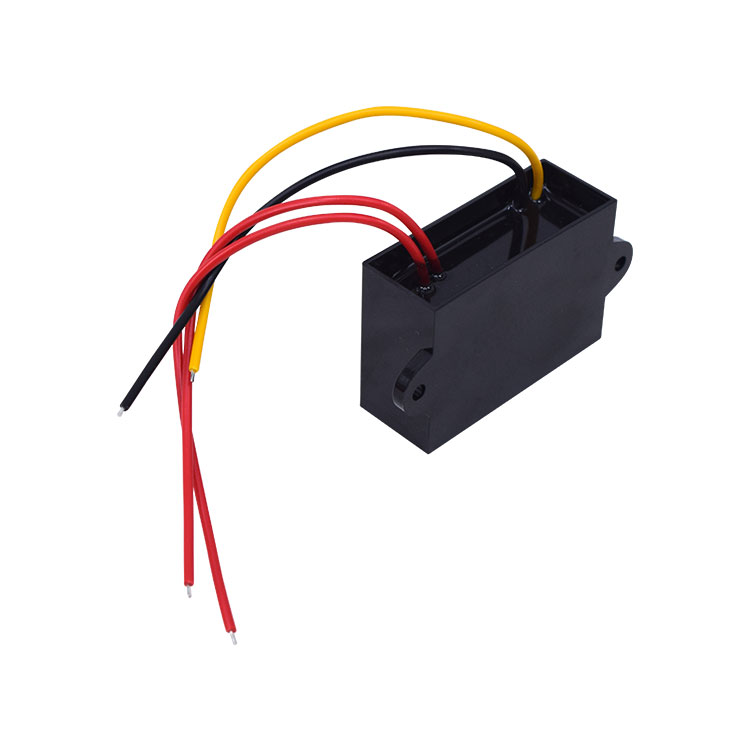
AC to DC converters, also known as rectifiers, are crucial components in the power conversion industry. They facilitate the conversion of alternating current (AC), which is the standard type of current supplied by power grids, into direct current (DC) usable by electronic devices and batteries. This conversion process is vital in various applications, such as power supplies for electronic devices, battery charging, and renewable energy systems.
There are several techniques for accomplishing this conversion, each with its unique advantages and disadvantages. For instance, the conventional diode rectifier is simple and reliable, but it generates a significant amount of harmonic distortion, which can impair power quality. On the other hand, resonant converters can provide high-efficiency power conversion with minimal harmonic distortion, but they are more complex and require careful design to ensure stable operation.
In the realm of AC to DC converters, YUCOO has established itself as a leading manufacturer. They offer a wide range of converters suitable for various applications, including industrial power supplies, renewable energy systems, and electric vehicles. YUCOO's converters are known for their high efficiency, reliability, and advanced features such as soft-switching and power factor correction.
One of the key challenges in designing AC to DC converters is managing the trade-off between performance and complexity. High-performance converters often require complex control strategies and sophisticated circuit designs, which can increase cost and reduce reliability. Therefore, there is a constant drive in the industry to develop new converter topologies and control strategies that can deliver high performance while minimizing complexity.
Looking ahead, one of the emerging trends in the AC to DC converter industry is the integration of artificial intelligence (AI) into the design process. AI algorithms can be used to optimize converter designs, predict system performance under various operating conditions, and even diagnose faults in real-time. This could significantly speed up the design process and improve the reliability and performance of the converters.
In conclusion, AC to DC converters play a crucial role in the power conversion industry, enabling the safe and efficient use of electricity in a wide range of applications. The ongoing development of new converter technologies and control strategies, driven by companies like YUCOO, promises to deliver even better performance and reliability in the future.
Exploring the Key Technologies of AC-DC Power Supply: From Rectifiers to Inverters
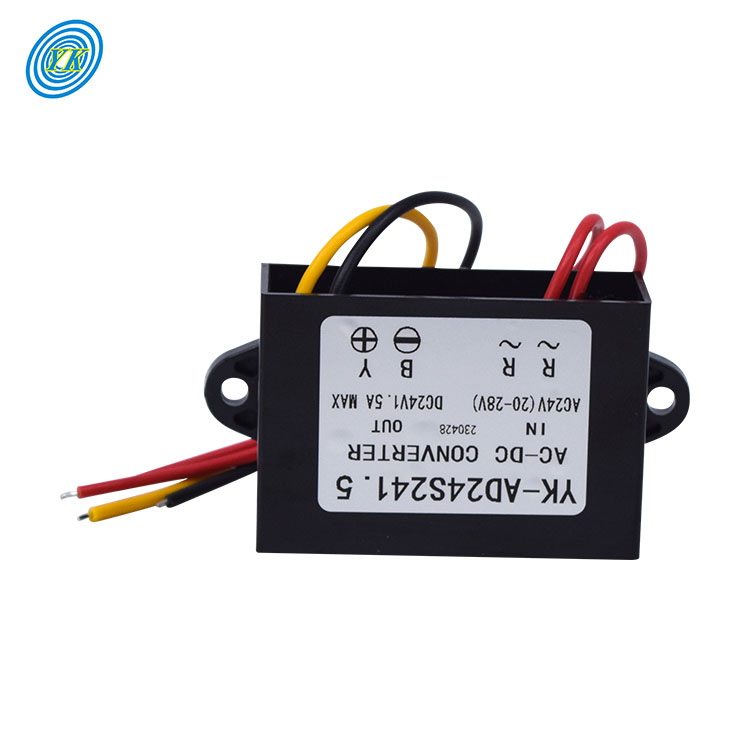
The AC-DC power supply industry hinges on key technologies that facilitate the transformation of AC to DC, with rectifiers and inverters playing pivotal roles. Rectifiers, which convert AC into DC, and inverters, which convert DC back into AC, are fundamental components in power conversion systems.
Rectifiers come in several forms, including the conventional diode rectifier and resonant converters. While diode rectifiers are simple and reliable, they generate considerable harmonic distortion, which can degrade power quality. Conversely, resonant converters offer high-efficiency power conversion with minimal harmonic distortion but require intricate design for stable operation.
Inverters transform DC into AC, a process crucial in applications like renewable energy systems where DC generated from sources like solar panels must be converted into AC for use in homes and businesses. There are various types of inverters, each with its unique characteristics and suited for different applications.
A key player in the AC-DC power supply industry is YUCOO, a company renowned for producing high-quality converters. YUCOO's products are recognized for their high efficiency, reliability, and advanced features, including soft-switching and power factor correction. Their product range caters to a variety of applications, including industrial power supplies and renewable energy systems.
One of the significant challenges in designing AC-DC converters is balancing performance and complexity. High-performance converters often require complex control strategies and sophisticated circuit designs, which can increase the cost and potentially decrease reliability. Therefore, the industry is continually striving to develop new converter topologies and control strategies that can deliver high performance while minimizing complexity.
In conclusion, rectifiers and inverters form the backbone of the AC-DC power supply industry, facilitating the efficient use of electricity across a host of applications. The ongoing development of new converter technologies and control strategies, with companies like YUCOO at the forefront, promises to deliver improved performance and reliability in the future.
The Significance of DC-DC Converters in the Power Supply Industry
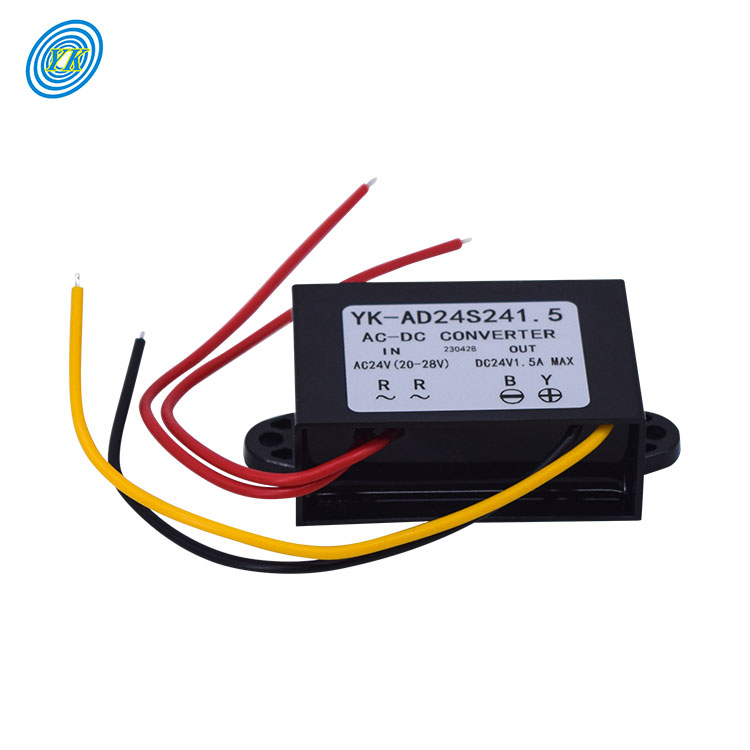
DC-DC converters, which convert one level of direct current (DC) voltage to another, are integral components in the power supply industry. These converters are particularly prominent in the design and operation of electronic devices, which often require specific voltage levels to function correctly.
The market for DC-DC converters is witnessing substantial growth, driven by technological advancements in DC-DC converter components. Additionally, the rising adoption of electric vehicles and the increasing use of DC-DC converters in railway applications are contributing to the expansion of the market.
In electric vehicles, DC-DC converters play a crucial role in managing the electrical energy created by the vehicle's generator. They are typically used to provide power to the 12V system, but can also be used for other functions such as starting the vehicle and supporting autonomous driving.
In railway applications, DC-DC converters are used to convert DC battery voltages to a lower voltage for use in various control and energy circuits. This is because railway rolling stock often uses a DC power distribution system so that batteries can maintain electrical power in the event of a generator failure.
Moreover, the growing demand for power electronics components is driving the need for DC-DC converters. These converters are vital parts of integrated circuits used in power electronics equipment, and their manufacturing has to meet regulatory and safety requirements like EN60950 and UL60950 for IT equipment.
Despite the significant role of DC-DC converters in the power supply industry, there are challenges to their manufacturing. Designing high-frequency, high input voltage DC-DC converters is considered one of the primary challenges faced by manufacturers. Furthermore, global shortages in integrated circuits have affected the supply chain of DC-DC converters.
In conclusion, DC-DC converters are a pivotal part of the power supply industry. Their role in various applications, from electric vehicles to railway systems, underscores their importance. Despite the manufacturing challenges and supply chain disruptions, the market for DC-DC converters continues to grow, driven by increasing demand and technological advancements.
The Impact of Switching Power Supply on the AC-DC Converter Industry
Switching power supplies, also known as switch-mode power supplies, have significantly impacted the AC-DC converter industry. These power supplies are popular due to their ability to continuously toggle between on and off states, thereby managing power consumption and reducing energy waste.
One of the main advantages of switching power supplies is their high efficiency, which can reach up to 95% with the correct components and system configuration. This high level of efficiency is particularly important in today's energy-conscious society, where there is a growing demand for energy-efficient devices.
Switching power supplies also contribute to the downsizing of AC-DC converters. By integrating multiple features onto a single IC chip, they allow for a smaller footprint and fewer parts, which leads to more flexibility in installations and reduced manufacturing and shipping costs. However, this downsizing can be challenging to achieve due to the need for heat sinks and cooling fans, which are necessary to control and minimize heat generation.
Despite their advantages, switching power supplies do present certain challenges. They require high-voltage tolerant components, including high-power MOSFETs (Metal Oxide Semiconductor Field-Effect Transistors). Moreover, the risk of obsolescence is a significant issue faced by engineers and designers. They must ensure that the chosen AC-DC converter will be guaranteed for the life of the product, as having to redesign because of the obsolescence of an AC-DC converter can be costly and time-consuming.
In conclusion, switching power supplies have had a profound impact on the AC-DC converter industry. They offer high efficiency and contribute to downsizing, but they also present certain challenges that need to be addressed. Nevertheless, the ongoing advancements in technology promise to overcome these challenges and further enhance the performance and reliability of AC-DC converters.
The Future of AC-DC Power Supply Industry: The Integration of Renewable Energy Sources
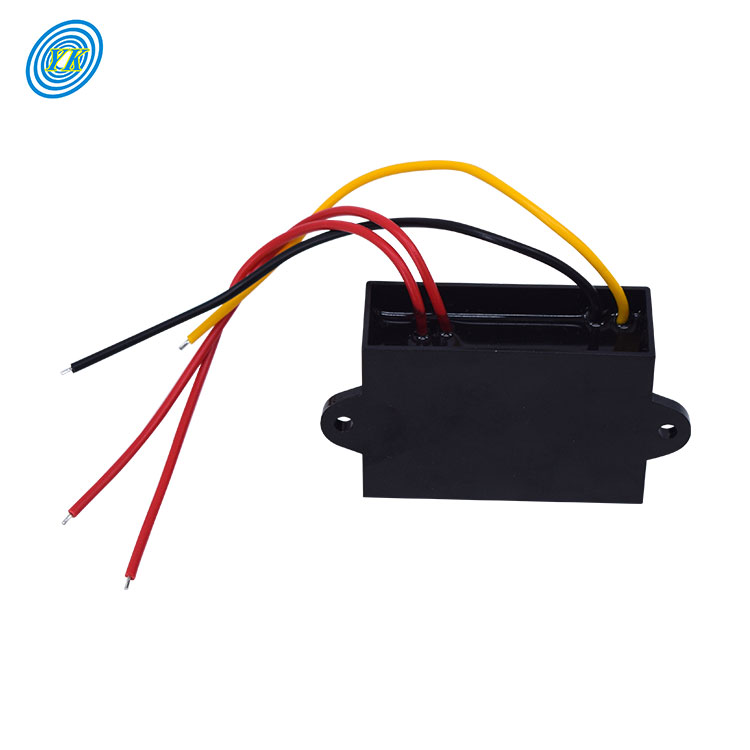
The future of the AC-DC power supply industry lies in its ability to adapt to the growing demand for renewable energy sources. As countries around the world strive to reduce their carbon footprint, the integration of renewable energy into the AC-DC power supply industry is no longer just an option, but a necessity.
In the past, the AC-DC power supply industry has primarily relied on non-renewable energy sources. However, with the increasing awareness of environmental issues and the constant advancements in technology, renewable energy sources such as wind, solar, and hydroelectric power have become increasingly viable and cost-effective.
Wind and solar power, in particular, hold great potential. They are abundant, renewable, and emit no greenhouse gases during operation. The integration of these renewable energy sources into the AC-DC power supply industry would significantly reduce its environmental impact. However, the intermittent nature of these energy sources presents a challenge. AC-DC converters that can efficiently handle the fluctuations in power generation from these sources are crucial.
Hydroelectric power is another renewable energy source that can be effectively integrated into the AC-DC power supply industry. Unlike wind and solar power, hydroelectric power can provide a steady and reliable source of energy. However, the construction of hydroelectric power plants often has significant environmental and social impacts, which need to be carefully managed.
As the AC-DC power supply industry moves towards the integration of renewable energy sources, companies like YUCOO are leading the way. YUCOO's AC-DC converters are designed to handle the variable nature of renewable energy sources, making them a key player in the drive towards a more sustainable future.
In conclusion, the future of the AC-DC power supply industry lies in its ability to adapt and integrate renewable energy sources. Not only will this shift towards renewable energy sources help to reduce the industry's environmental impact, but it will also open up new opportunities for innovation and growth. As technology continues to evolve, the integration of renewable energy sources in the AC-DC power supply industry will become increasingly efficient and cost-effective.
